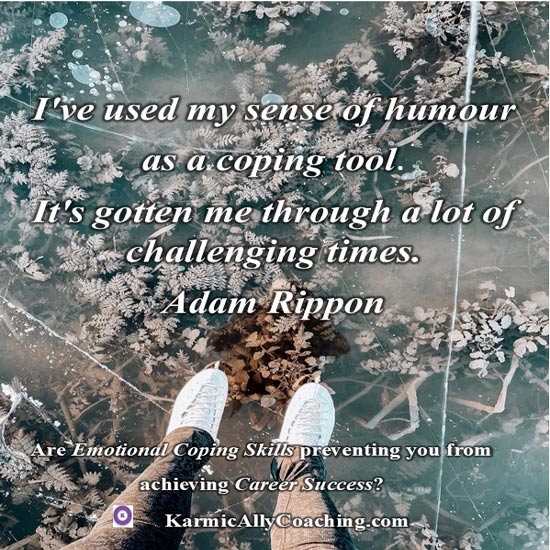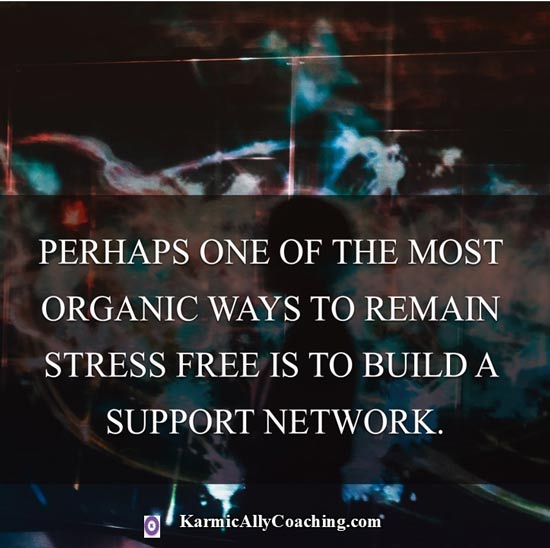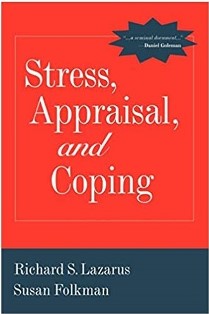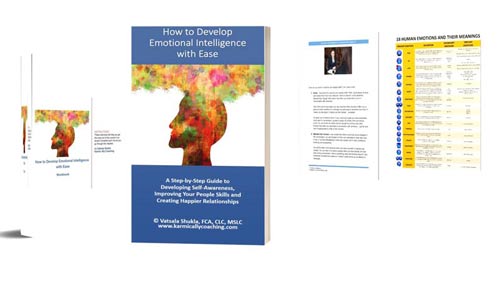This post has already been read 757 times!

If your career ambitions include reaching the top rung of the corporate ladder, then you need to develop your emotional coping skills.
You may be or think you’re the smartest person in the room at work.
You might be better at delivering quality work than your co-workers or even hold more qualifications and certifications than your colleagues but you might not be getting the kind of raises and promotions you feel you deserve.
If any of this resonates with you, then you want to look at your emotional coping skills.
Your boss and HR might not tell you in clear words what’s missing during performance appraisals or counselling although you will find yourself labelled as ‘difficult’ or ‘too emotional’.
You might also be put on a performance improvement plan with the real issue masked by an easier topic.
You need to understand that a high IQ and other hard core skills aren’t enough to get you promoted or considered for a leadership position in the modern corporate world.
Of course you’ll get the pay rise and a bonus but after a point, that’s not enough on the Maslow Hierarchy of Needs and you’ll want more.
I’m not speaking from the top of my head – I’ve seen it happen.
Many years ago when I was a Finance Manager for a global energy sector company, I used to interact with a highly knowledgeable and competent Senior Manager from a Big 4 firm for the personal taxes of our expat employees.
This lady professional knew her area of expertise in comparison with one of her team members who I personally felt was over-confident and cocky at times.
Besides he’d make mistakes which included misspelling the Country Manager’s name on documents that needed to be signed before submitting to the authorities.
Imagine my surprise when I learned he had been promoted and then 2 years later made Partnership.
By chance there was another firm dealing with our corporate tax and company returns who had worked before with this lady in another company and he revealed her prospects were limited because of her outbursts and alleged lack of people skills when working under pressure.
She must have undertaken training to express her emotions in a manner that was not perceived negatively or maybe she became aware of her self-sabotaging behaviour because years later, she made partnership which honestly should have come earlier.
If you’ve worked even a day in the corporate world, you’d know it’s not unusual for people who are obviously less intellectually-gifted than you to get promoted not just once, twice, but all the way to the top.
What’s going on?
Part of it will be intelligence scores. In fact, in study after study, IQs have been correlated to life success. IQ tests are almost universally accepted as a good indicator of overall life success.
But this begs the question, “how come people with high IQs don’t always become successful?”
In fact, if we’re talking about really spectacular levels of success, I’m talking about corner office CEO type of success, when factoring an IQ, is not always the case.
There can be a number of factors including being the favourite of the boss, being part of the right group or even being at the right place at the right time.
But if we were to account for all of that, there is one other factor that shines forth. It cannot be ignored.
This is called emotional intelligence.
One key part of your emotional intelligence is your skill in coping emotionally with certain social situations. This might be holding you back.
If you have tough time dealing with task completion and you tend to say the wrong things to the wrong people at the wrong time, don’t be surprised if this all blows up in your face when promotion time comes around.
If you find yourself always locked into some sort of negative emotional feedback loop with certain types of personalities in your office, don’t be surprised if this has a negative effect on your career trajectory.
These situations are impacted by your emotional coping skills or lack of it.
How do you deal with difficult people?
How do you interact with people who seem to oppose you at every turn?
How do you manage people who have negative attitudes or a corrosive personality?
These problems are not going away nor can they be explained away.
Your high IQ might help you engage in battle with these difficult types of people but you can’t wish them away.
This is where emotional intelligence comes into the picture and you need to develop this skill.
Besides, a deficiency in your emotional coping skills maybe preventing you from going up the corporate ladder as fast as you wish.
Before developing Emotional Intelligence, consider your Emotional Coping Skills

The pandemic years have brought focus back on our emotional coping skills and our mental health during times of an uncertain future.
Coping has been defined in Wikipedia as the conscious or unconscious strategies used to reduce unpleasant emotions.
The article goes on to explain that coping strategies can be cognitions or behaviours and can be individual or social and shares the different outcomes of research.
While the classification of these strategies into a broader architecture has not been agreed upon, highly regarded researchers have tried to group coping responses rationally, empirically by factor analysis, or through a blend of both techniques.
For example, Susan Folkman and Richard S Lazarus identified 4 groups of coping strategies – problem-focused, emotion-focused, support-seeking, and meaning-making coping.
Weiten has identified four types of coping strategies – appraisal-focused (adaptive cognitive), problem-focused (adaptive behavioral), emotion-focused, and occupation-focused coping.
Billings and Moos added avoidance coping as one of the emotion-focused coping.
Despite the various groupings, one thing is certain, people can used multiple coping strategies or even apply different strategies to deal with the situation at hand.
When we use emotion-focused coping strategies, we try to manage the emotions that accompany the perception of stress.
The five emotion-focused coping strategies identified by Folkman and Richard Lazarus are:
- disclaiming
- escape-avoidance
- accepting responsibility or blame
- exercising self-control
- & positive reappraisal.
There are a number of ways we can try to minimize or even reduce the emotional components of the stress creating trigger, namely, seeking social support, reappraising the stressor in a positive light, accepting responsibility, using avoidance, exercising self-control and even distancing ourselves from the stress creating situation.
When choosing an emotional coping mechanism, one has to consider whether we need it for a specific incident or if the need is a long term one.
For example distancing ourselves when the boss is in a crabby mood is a short term strategy but if you’ve had a job loss or bereavement, having a robust social support system to see you through the life altering event is better.

While some mechanisms require using sources or actions external to us, longer term strategies require us to introduce changes within ourselves.
That’s where activities such as breath work, meditation, yoga, chakra balancing, aromatherapy, exercise or acquiring a hobby like art and pottery help us refocus from the stressor by using physical or mental distractions.
Emotional Coping Skills and Emotional Intelligence –Concluding Thoughts
Accepting we need to develop coping skills of any kind takes a lot of courage and honesty because most people don’t want to accept that there might be something wrong with them or that they are part of the problem.
But if you want to make progress, you need to look at your emotional coping skills with clear eyes.
Be honest with yourself and when you find yourself handling a situation in less than the best manner possible, ask yourself
Am I handling this situations in the best way I am capable of?
Do I really need to react?
Do I have to always pull rank?
Can I come up with a sort of win-win situation?
Asking yourself these questions will lead to your mastering the first component of Emotional Intelligence – Self-Awareness and if you get that right, then you will make progress in understanding and applying Social Awareness.
Unfortunately, most people are ill-equipped to handle these questions and that’s why we achieve success on a fairly random basis. Sometimes we do well, sometimes we don’t.
As with every behaviour modification and change, this takes time.
The question then is, are you willing to do it?
If you want a little bit more predictability in managing your day to day success by honing your emotional coping skills check the resources below by clicking on the images (the recommended reading are affiliate links).
Karmic Ally Coaching’s How to Develop Emotional Intelligence with Ease







 I adhere to the Certified Coaches Alliance Code of Ethics and Standards. A copy is available on request.
I adhere to the Certified Coaches Alliance Code of Ethics and Standards. A copy is available on request.
 Let's Talk through the Connect Form:
Let's Talk through the Connect Form: